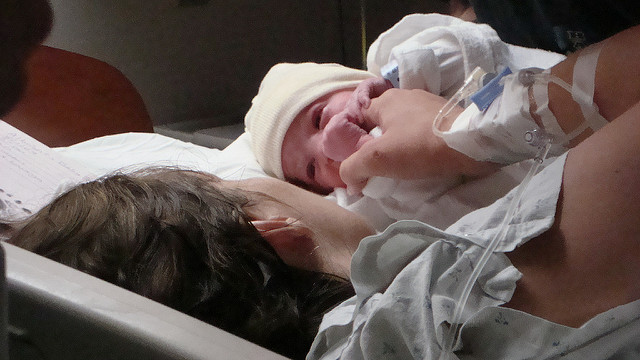The Fifth Circuit Court of Appeals on Tuesday ruled that the Biden administration cannot illegally use federal law to force emergency room doctors to commit abortions. The Biden administration has been attempting to force emergency room doctors to commit abortions under the Emergency Medical Treatment and Labor Act (EMTALA), but induced abortion — the intentional and deliberate killing of a preborn child — is not medically necessary, even in an emergency.
Alliance Defending Freedom (ADF) attorneys representing the American Association of Pro-Life Obstetricians and Gynecologists (AAPLOG) and the Christian Medical and Dental Association called the appeals court’s decision “a pivotal victory for women, children, and healthcare professionals.”
The lawsuit against the Biden administration came in 2022 just three days after Health and Human Services Secretary Xavier Becerra threatened hospitals and doctors with the termination of their Medicare provider agreements and with financial penalties if they did not commit abortions. Becerra had claimed that EMTALA pre-empts state pro-life laws.
The attorneys, along with the State of Texas, asked the appeals court to keep a lower court ruling in place that had prevented the Biden administration from using EMTALA to force emergency room doctors to commit abortions against their conscience. The court of appeals agreed with that lower court ruling, deciding that EMTALA does not require emergency room doctors to commit abortions, but rather prevents hospitals from refusing to treat patients who are unable to pay for their needed medical care. Hospitals are therefore required under EMTALA to stabilize both the pregnant mother and the preborn child during an emergency regardless of a person’s ability to pay, said ADF. EMTALA does not mandate that specific procedures be carried out.
READ: Biden-Harris administration launches task force to ‘protect and bolster’ abortion
“Hospitals—especially emergency rooms—are tasked with preserving life. The 5th Circuit correctly ruled that the federal government has no business transforming them into abortion clinics,” said ADF Senior Vice President of Strategic Initiatives Ryan Bangert, who argued before the court. “Doctors shouldn’t be forced to break the Hippocratic Oath, and they shouldn’t have to choose between violating their deeply held beliefs or facing stiff financial penalties and being barred from the Medicare program. Emergency room physicians can, and do, treat life-threatening conditions such as ectopic pregnancies. But elective abortion is not life-saving care—it ends the life of the unborn child—and the government has no authority to force doctors to perform these dangerous procedures. We are pleased that the courts are allowing emergency rooms to fulfill their primary function—saving lives.”
The Texas Heartbeat Act defines abortion as (emphasis added):
[…T]he act of using or prescribing an instrument, a drug, a medicine, or any other substance, device, or means with the intent to cause the death of an unborn child of a woman known to be pregnant. The term does not include birth control devices or oral contraceptives. An act is not an abortion if the act is done with the intent to:
(A) save the life or preserve the health of an unborn child;
(B) remove a dead, unborn child whose death was caused by spontaneous abortion; or
(C) remove an ectopic pregnancy.
Idaho is in the middle of a similar case that is currently in the hands of the 9th Circuit Court of Appeals. In August of 2022, shortly after the fall of Roe v. Wade, the Biden Department of Justice filed a lawsuit against Idaho’s pro-life trigger law, which protects virtually all preborn children from abortion. A judge granted an injunction against the law after finding that it conflicted with EMTALA. A panel of the 9th Circuit Court of Appeals removed that injunction on the law only to issue a stay on it a month later until the full 9th Circuit hears the state’s appeal, which is expected later this month.
There is never a medical need to intentionally cause the death of a preborn child. If a pregnant woman is facing a medical emergency and her pregnancy must end, doctors can deliver the baby without killing her first.







